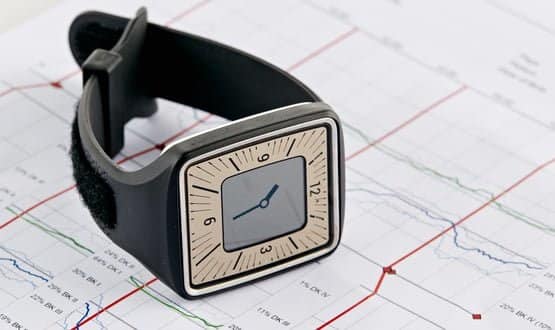A wearable system that monitors the symptoms of Parkinson’s disease has received its CE marking, indicating it’s safe to use across Europe.
Global Kinetics’ Parkinson’s KinetiGraph system records body movements and other symptoms, generating data drive reports to alert patients and clinicians to potentially significant changes.
The CE marking denotes the product has gone through an accreditation process ensuring certain European standards of safety, health and environment protection.
An older version of the technology that monitors the symptoms over a period of seven days, rather than continuously, is used at St George's University Hospitals NHS Foundation Trust.
Dominic Paviour, a consultant neurologist at the trust, said that the technology provides a “graphic form” of speed of movement, tremors and excessive movement to the clinicians.
“It can give the patient a little more confidence that their symptoms are being monitored, as a clinician I can get an independent and objective idea of what a patient’s motor symptoms are like.”
Paviour compared the latest reincarnation of the technology to the fitness wearable, FitBit, where the patient can continually monitor his or her movements.
Timothy Still, chief executive and president of Global Kinetics Corporation, said the classification of the new technology “enables us to capitalise on our growing telehealth and clinical trial services businesses”.
The company said the technology will be introduced in 12 European movement disorder clinics in the next two months.
The CE mark is one of the few ways health software and accompanying wearable devices can be accredited for the UK market.
It is the only accreditation for medical software recognised by Royal College of Physicians but only handful of health IT system used in the UK have gained the mark, such as the Mersey Burns App.
Attempts to set up a more clinically-based assessment system for apps and wearables in the NHS have been faltering. As recently as September last year, Public Health England’s digital deputy director described the health app market as “broken”.
A NHS Choices Health Apps Library was set-up a health in 2013 but scrapped in October 2015, after a study found many of the endorsed apps could leak personal data.
At that time, the National Health Board said Public Health England would develop an alternative “app endorsement” system. In September 2016, health secretary Jeremy Hunt re-announced an app library project, which would be available from March 2017 and also cover wearables.
"We are going to make a very big move in the next 12 months into apps and wearables…what is going to change with apps is how these apps linked directly into our own medical records”, Hunt said.
The new system will likely be based on four-step endorsement model, but with less than three months till expected deliver, few other details about the system have been made public.
A Public Health England spokesperson told Digital Health News that NHS England was now leading the app library project, with NHS Digital with PHE also involved.

